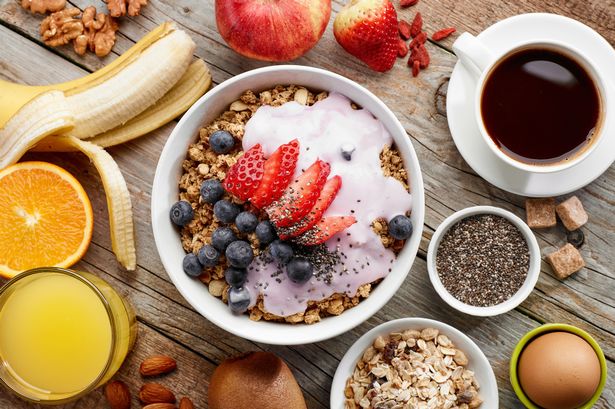Experts may have uncovered the best time to eat breakfast to reduce a person's risk of heart attack or stroke, thanks to new research.
A French study showed that people who eat for the first time at 9am are 6% more likely to develop cardiovascular disease than someone who has breakfast at 8am. Eating after 9pm was associated with a 28% greater risk of cerebrovascular disease, such as a stroke, compared with eating before 8pm, particularly in women.
And the findings, published in the journal Nature Communications, also show that a longer duration of "night-time fasting", the time between the last meal of the day and the first meal the next day, was linked with a reduced risk of a stroke.
READ MORE: New Year's Day tradition that prevents people using the washing machine
READ MORE: Tesco, Aldi, M&S and Waitrose are refusing to sell certain items
Cardiovascular diseases, such as a heart attack or stroke, are the leading cause of death in the world, according to the Global Burden of Disease study, with 18.6 million annual deaths in 2019, of which around 7.9 million were attributable to diet. Scientists say the modern Western lifestyle has led to specific bad eating habits such as eating dinner late or skipping breakfast.
They explained that the daily cycle of food intake, alternating with periods of fasting, synchronises the peripheral clocks, or circadian rhythms, of the body’s various organs, influencing functions such as blood pressure regulation. Chrononutrition is now emerging as an important field for understanding the relationship between the timing of food intake, circadian rhythms and health.
The research team used data from more than 103,000 French people – most (79%) of whom were women, with an average age of 42 – to study the associations between food intake patterns and cardiovascular disease.
Doctor Bernard Srour said: "A longer duration of night-time fasting – the time between the last meal of the day and the first meal of the following day is associated with a reduced risk of cerebrovascular disease, supporting the idea of eating one’s first and last meals earlier in the day."
Dr Srour, of the National Research Institute for Agriculture, Food and Environment (INRAE) in France, added: "These findings, which need to be replicated in other cohorts and through additional scientific studies with different designs, highlight a potential role for meal timing in preventing cardiovascular disease.
"They suggest that adopting the habit of eating earlier first and last meals with a longer period of night-time fasting could help to prevent the risk of cardiovascular disease."
Receive newsletters with the latest news, sport and what's on updates from the Liverpool ECHO by signing up here
Win £1000 worth of energy-efficient Hotpoint appliances to power up your winter savings

